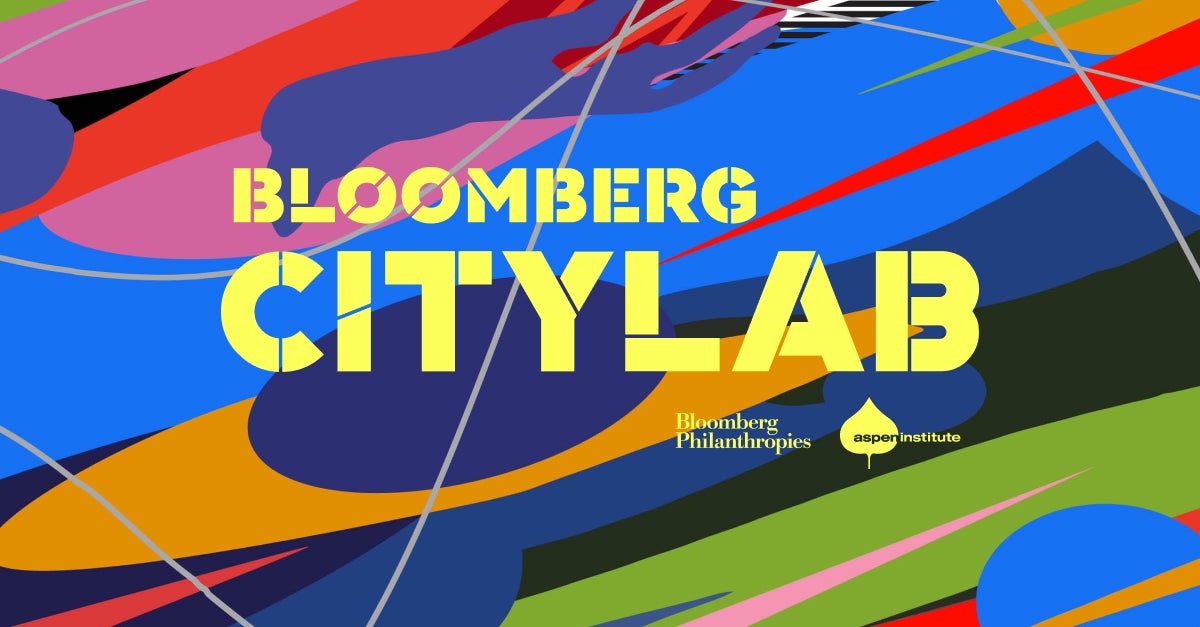Kia Weatherspoon is the President of Determined by Design, a full-service interior design firm focusing on multi-family affordable and supportive housing properties, boutique hotels and small businesses located in economically challenged and emerging communities. Kia has 10 years of diverse design experience in hospitality, multi-family and high-end residential markets, and has served in the United States Air Force for 17 years.
This interview is part of the Aspen Institute Center for Urban Innovation’s series of conversations with inclusive innovation practitioners.
Jennifer Bradley: What are the values that guide your work?
Kia Weatherspoon: For me, it’s first, let me show you your worth based off of where you live, whether it’s your apartment building or the small businesses you frequent in your community.

Kia Weatherspoon, President, Determined by Design
When I worked on a nonprofit project for domestic violence survivors in Anacostia in Washington, DC, the women 1) felt they didn’t need a well-designed space, 2) didn’t think it was accessible to them and 3) couldn’t believe that someone wanted to give them that. The bigger picture for me was, “Wow, the people who need well-designed spaces the most, they don’t know they don’t have it, they don’t know they need it, and they don’t have an advocate for it.” That’s been the driver for my business, this notion of, how can we instill self-worth and value to people based off of where they live. We spend 97% of our time indoors, so the places that we live, we work, we inhabit, they matter. They matter to us saying that we’re worthy or we’re of value.
I’m going to be 100% candid. There is a systemic issue of how economically challenged communities, predominantly communities of color, are built and designed. There’s no connection to the development that happens in these communities with the actual community members and constituents. Primarily because community members don’t see people of color like themselves as a part of the development, construction, and design process. They don’t see people who look like they could have been their neighbor, or they could have been their grandmother’s neighbor growing up. A big part of what I do is make interior design a standard in those economically challenged communities, as well as be an example, a woman of color who is a business owner and a part of designing and curating the buildings and the homes in their community. The goal is to inspire them to make them feel that they, too, can be a part of building and designing and developing their own community.
JB: Have you had a time where the values that are guiding your business or your practice have been in conflict? If so, can you tell me how you resolved that?
KW: A lot of my work is about advocacy for affordable and supportive housing, and recently I had to take on a project that was for, as the client described it, “the six-foot tall white man.” It’s this luxurious apartment building. In my mind, I was like, “Kia, do you really need to take this project? It doesn’t speak to your value of elevating design for those in economically challenged communities. It doesn’t speak to this notion of building your community of people who look like you.” But I also said to myself, “It’s not fair to say you won’t design for a certain demographic.”
It was tough. Do I take on market rate projects when I’m really trying to advocate for elevating affordable and supportive housing design? How do you do both of them? That is my biggest internal struggle because Determined by Design is a social impact business, not just a design firm hell-bent on designing luxurious spaces. How do I find that balance?
JB: What do you think is the purpose of values?
KW: The purpose of values is to fuel your soul when it’s hard. Especially as an entrepreneur and a small business owner, if I didn’t have so much conviction in what I believe in, when it was hard, when there is struggle, when it’s so tumultuous and overwhelming, I would just quit and do something else. Values fuel you, they keep you grounded, they keep you humble. They remind me of the bigger picture and the greater good. Without that, I’d just be trucking along in life, not really making an impact. For me, they give me direction and purpose in knowing that what I’m doing is bigger than me.
JB: Can you tell me about a time that your organizational values, the values that you hold for your business, guided you through a difficult decision?
KW: Absolutely, this happens all the time. My clients are typically developers. At the end of the day, they don’t care about my whimsical notion of making interior design a standard for all. On multiple projects, I’ve had a client say, “You’re making it too nice for these people.” There was a chair that was going in a multipurpose room in a supportive housing project for women, where most of the women had some type of mental illness. The client said to me, “The chair is just too nice for this setting.”
I questioned, “Well, what does that mean?” Not that it’s not durable, not that it’s not within budget, but it was just too nice for these people. I could have conceded to my client, but sometimes I see an opportunity for education and awareness and advocacy, so I had to lay out all the reasons why this chair was a part of the bigger context of saying, “Hey, these women deserve nice things, too, no matter what their mental deficits may be, no matter what their social standing is, they also need a nice space as well. So, there is no such thing as it’s too nice for this space.”
Another example: I was working on new construction of affordable senior housing, and there was this elaborate wall of accessories and décor. The client says, “I think we’re going to have to glue everything down so people won’t steal it.” I was like, “No, I think we’re going to be okay.” Again, it’s this notion of their value – the developer, they see dollars, maintenance, operation costs, security. I see that if you give someone something of value, you show them their worth and it will impact how they interact with that space in a positive way. This same client came to me six months later, floored, and said, “They [the residents] take so much pride in the space. They make sure everything is exactly where it’s supposed to be. They’re very protective.” This helps my client keep operation and maintenance and security costs down. More importantly, Determined by Design has created a space that made formerly homeless people feel valued.
JB: How do you hold yourself accountable to your values?
KW: I trust my gut. If it doesn’t feel good, I just don’t do it. If there’s ever a moment where I must question my integrity based off of a task asked of me, if it does not feel like it’s 100% a part of our values and our mission, if there’s an inclination towards those feelings, I know that we don’t need to take on a project. I don’t need to do what’s asked of me, or, more importantly, I need to educate so we can align it with the values of our business.
JB: Is there anything else you want to say about how you practice your values or anything else you want somebody reading this post to know?
KW: I think in a business, small or large, there’s always this tension of how can you be a value or a mission-driven organization and still make money and be successful? The key is knowing that sometimes the success is not associated with a dollar. I will never forget, when I finished a project for domestic violence survivors and a woman came up to me and said, “Miss Kia, when I walked into this room I realized change was possible for me.” You couldn’t put a price tag on that feeling. That’s the most important thing to me, and it is why I hold my values true to my business, because I know the impact that we can make.
This interview has been condensed and edited for clarity.
This blog series is supported by the Citi Foundation, a vital early supporter of the Center for Urban Innovation at the Aspen Institute. With the Citi Foundation’s help, the Center convened leading-edge practitioners to develop a shared set of principles to guide a cross-sector approach to inclusive innovation in low- and middle-income neighborhoods, and to determine how the Aspen Institute could support this practice.


